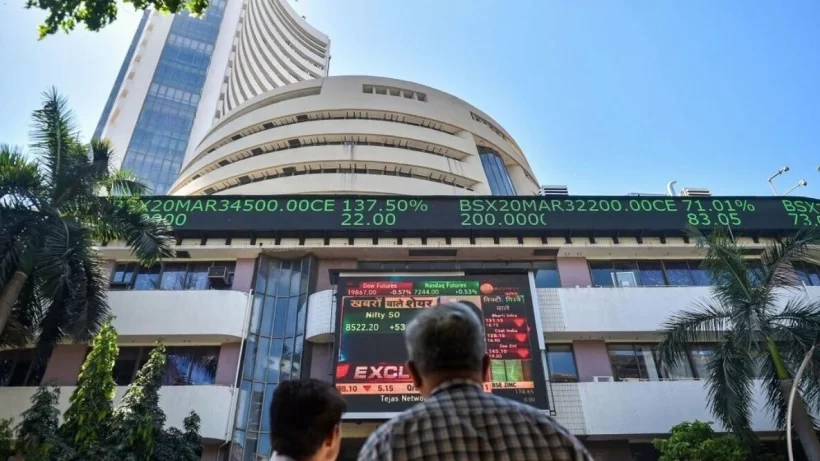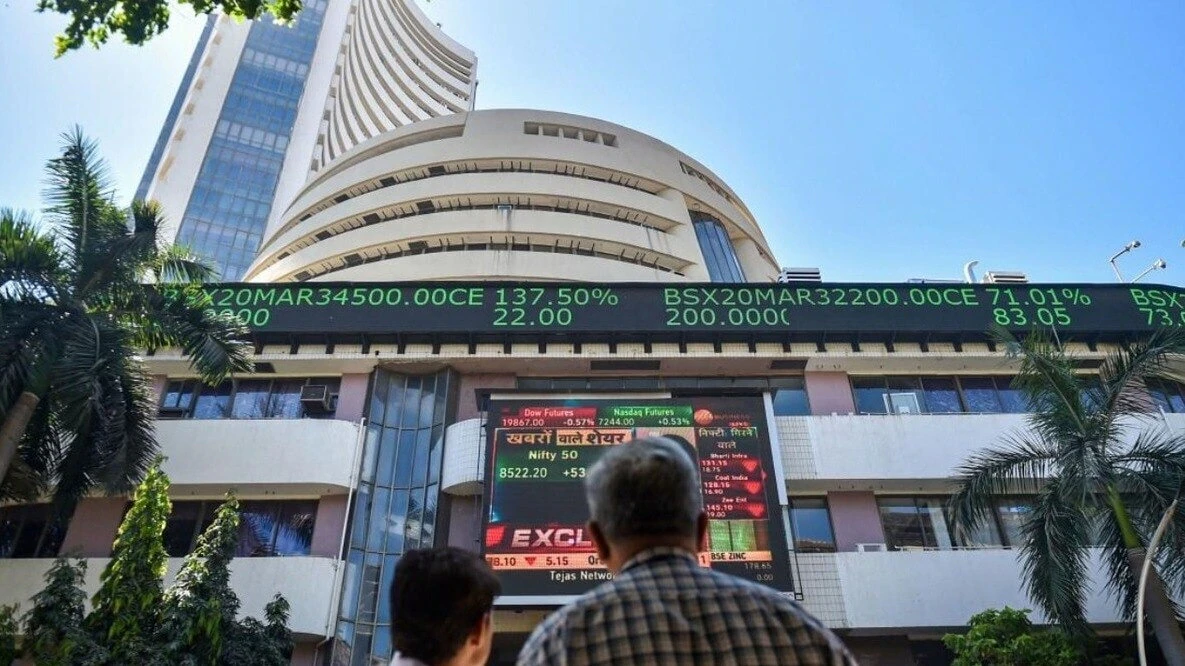Sensex Plunges 500 Points, IT Stocks Lead Market Slide
It was a rough morning for the Indian stock market as investors woke up to a sea of red. The S&P BSE Sensex took a steep dive of over 500 points, while the Nifty 50 slipped below the 23,200 mark. Leading the fall were IT heavyweights like Infosys and HCLTech, dragging the entire sector down.
If you’re wondering what exactly triggered this market panic and what it means for you, don’t worry—we’re breaking it all down in simple terms. Whether you’re a seasoned investor or just starting your journey in the stock market, this post will help you make sense of what’s going on.
What happened to the Sensex and Nifty?
The Indian stock market opened on a negative note Thursday morning, with major indices showing a sharp decline. Here’s a quick snapshot:
- Sensex: Dropped over 500 points shortly after opening.
- Nifty: Fell below the psychological level of 23,200.
This sudden fall has sent shockwaves across investor communities. And the biggest culprit? The IT sector.
Why the IT Sector is taking a hit
IT stocks were the worst performers of the day – and for good reason. Prominent IT companies like Infosys and HCLTech saw their stocks slide significantly. So, what’s behind this tech trouble?
According to experts, the dip is largely due to concerns over global demand. Many of these IT firms do business internationally, especially in markets like the U.S. and Europe. If economic signals from those regions suggest slower growth, it can directly hit the revenues of Indian IT companies. And when revenues look shaky, investors tend to back off.
Here are a few more Reasons IT Stocks are struggling:
- Weak guidance: Companies are warning investors of lower future earnings.
- Currency volatility: The Indian rupee’s fluctuation affects dollar earnings.
- Hiring freezes: Some companies have slowed down hiring, a sign of caution.
This isn’t the first time IT firms have faced these kinds of headwinds. But when a sector that makes up a big chunk of the stock market takes a tumble, it pulls everything down with it.
How other sectors are responding
While IT bore the brunt of the sell-off, the damage wasn’t limited to just one sector. Other areas such as finance, energy, and consumer goods also experienced some pullback. Although the fall wasn’t as steep as in tech stocks, it’s clear that market sentiment is cautious overall.
That said, not everything is gloomy. A few sectors like FMCG (Fast-Moving Consumer Goods) and pharmaceuticals showed relative resilience. These are usually considered “defensive sets”—the kind of stocks investors turn to when markets get choppy.
Quick Look: Sector-Wise Performance
- IT: Sharp fall led by Infosys, HCLTech, Wipro, and TCS
- Finance: Mild decline but not a leading cause of the market dip
- Energy & Auto: Mixed performance, with some stocks holding up better
- FMCG/Pharma: Stable and resilient in early trading
What does this mean for investors like you?
If you’re an investor, days like this can be nerve-racking. It’s tempting to panic-sell or pull your money out, especially when the headlines are shouting about big losses.
But here’s the thing – markets go up and down. It’s a natural part of investing. And often, these kinds of dips can present a buying opportunity – if you have a long-term perspective.
Ask yourself this: Are you investing for a quick buck or for long-term growth? If it’s the latter, you might want to reconsider hitting that “sell” button just yet.
A simple rule: Don’t put all your eggs in one basket. Diversification across sectors (like tech, pharma, finance, and FMCG) can help protect your portfolio against sharp falls like today’s.
What market experts are saying
According to analysts, the pullback was somewhat expected. After weeks of strong rallying, the market was overdue for a correction. Even healthy markets need to cool down now and then.
One market strategist likened it to a runner who’s been sprinting for miles – eventually, they need to catch their breath. Likewise, the markets may just be pausing after strong gains in March and early April.
“Short-term corrections are a part of market behavior,” said an analyst. “Long-term investors should not be overly worried.”
Advice from Experts
- Keep calm: Don’t let panic drive your investment decisions.
- Focus on fundamentals: Companies with strong earnings and good management will bounce back.
- Use the dip: If you’ve been waiting for a market dip to invest, this could be your moment.
So, What’s next for the Market?
No one can perfectly predict what will happen tomorrow – or even within the next hour in the stock markets. That’s the nature of investing. But we can look at trends.
With global signals being mixed and concerns over inflation and interest rates still looming, some volatility can be expected. But remember, every dip has a recover story too. Historically, markets have bounced back – even after major downturns.
So, if you’re feeling nervous, take a step back. Breathe. Maybe even take a walk. Markets have survived wars, pandemics, recessions – you name it.
Final Thoughts: Don’t fear the dip
Days like these can test your patience as an investor. The sight of your portfolio balance shrinking isn’t fun. But these short-term blips often pave the way for longer-term gains.
If you’re new to investing, take this as a learning opportunity. Watch how markets react, how different sectors perform, and what drives investor behavior. The more you understand, the more confident you’ll feel handling market turbulence in the future.
And if you’re a seasoned investor, this might just be the buying opportunity you were waiting for. BSE Sensex
Staying Grounded in Stormy Markets
- Have a plan: Know your financial goals and stick to your strategy.
- Stay diversified: Don’t bet too heavily on one sector.
- Think long-term: Market ups and downs are just part of the journey.
Got Questions? Let’s Talk
Worried about your investments after today’s market fall? We’re here to help break it down. Drop your questions in the comments or reach out www.iasmania.com – even if you’re just curious about what all these numbers mean. Remember, there’s no such thing as a silly question when it comes to your money!
Stay calm, stay informed, and invest wisely.











